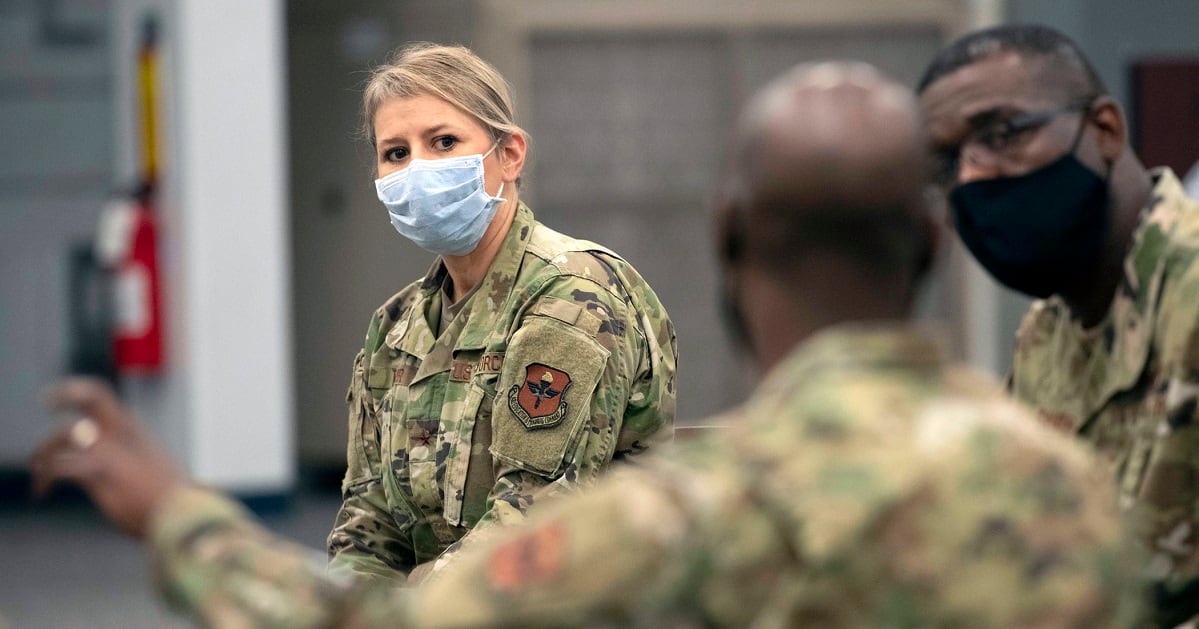The Defense Department’s inspector general has canceled an audit of its diversity, inclusion and equal opportunity training just a month after first announcing it.
As part of a series of initiatives born of his desire to get a handle on how prejudice and discrimination affect service members at work, the IG set out to evaluate whether these programs are effective. But a White House memorandum issued last month, banning any diversity training that discusses white people’s role in systemic racism, has forced DoD first get its existing training in compliance.
“[The] Uniformed Services should not teach our heroic men and women in uniform the lie that the country for which they are willing to die is fundamentally racist,” President Trump wrote in a Sept. 22 executive order. “Such teachings could directly threaten the cohesion and effectiveness of our Uniformed Services.”
More broadly, the memo targeted any federal training that references critical race theory, the idea that in order to achieve an egalitarian society, the society must acknowledge inequities and hold accountable those responsible for perpetuating them.
“This ideology is rooted in the pernicious and false belief that America is an irredeemably racist and sexist country; that some people, simply on account of their race or sex, are oppressors; and that racial and sexual identities are more important than our common status as human beings and Americans,” Trump wrote.
DoD instead plans to launch a new project, according to a Tuesday announcement, that focuses on implementing the White House memo.
“The objective was to determine whether the Military Departments provide military personnel with diversity, inclusion, and equal opportunity training that aligns with the DoD’s diversity, inclusion, and equal opportunity goals, and to determine whether the training is effectively implemented across the Military Departments in accordance with Federal and DoD policies,” Theresa Hull, an assistant inspector general, wrote in the Sept. 24 memo first announcing the project.
Her Tuesday follow-up memo does not explain why the first project must be canceled in favor of the second, only that the new focus is on the White House’s guidance.
A DoD IG spokeswoman declined to make a statement about the change.
Along with much of the country, the military has sought to get its arms around issues of racism that dominated the national conversation through much of the summer, as protests erupted around the country following the death of George Floyd, a Black man, at the hands of a white Minneapolis police officer.
RELATED

The Army, Navy and Air Force each launched their own diversity and inclusion projects or task forces, which followed the stand-up of a DoD team put together to brainstorm quick-action measures the department could undertake immediately to remedy its internal bias and inclusion issues.
Among them were removing photos from promotion packets, reviewing grooming standards for any regulations that unfairly target certain groups and developing policies and training materials to help commanders educate their forces on unconscious bias.
Defense Secretary Mark Esper also announced that DoD would launch a long-term board, modeled after the gender integration-focused Defense Advisory Committee on Women in the Services, to shepherd future initiatives.
There is uncertainty among troops, Esper recently told reporters traveling with him, over whether the department will keep up the motivation.
“One concern that was expressed — and I share the same concern — is that we lose focus,” Esper said, according to a Friday news release. “The good news is: It’s not different [from] my previous 23 sessions. The bad news is: It’s not different [from] the previous 23 sessions. In other words, there’s a constant concern out there.”
The DoD report evaluating diversity and inclusion training was another step in making progress, but it’s not yet clear how the White House’s order will affect what the services are able to teach.
The Army, for its part, has said that its training is already in compliance.
“We wouldn’t have been going down the critical theory road anyway,” Casey Wardynski, the Army assistant secretary for manpower and reserve affairs, told reporters Sept. 24. “We would not have gone down that road to spend money that way. It would not have aligned with our fundamental strategy and so, no, it’s not a concern for us.”
Meghann Myers is the Pentagon bureau chief at Military Times. She covers operations, policy, personnel, leadership and other issues affecting service members.





